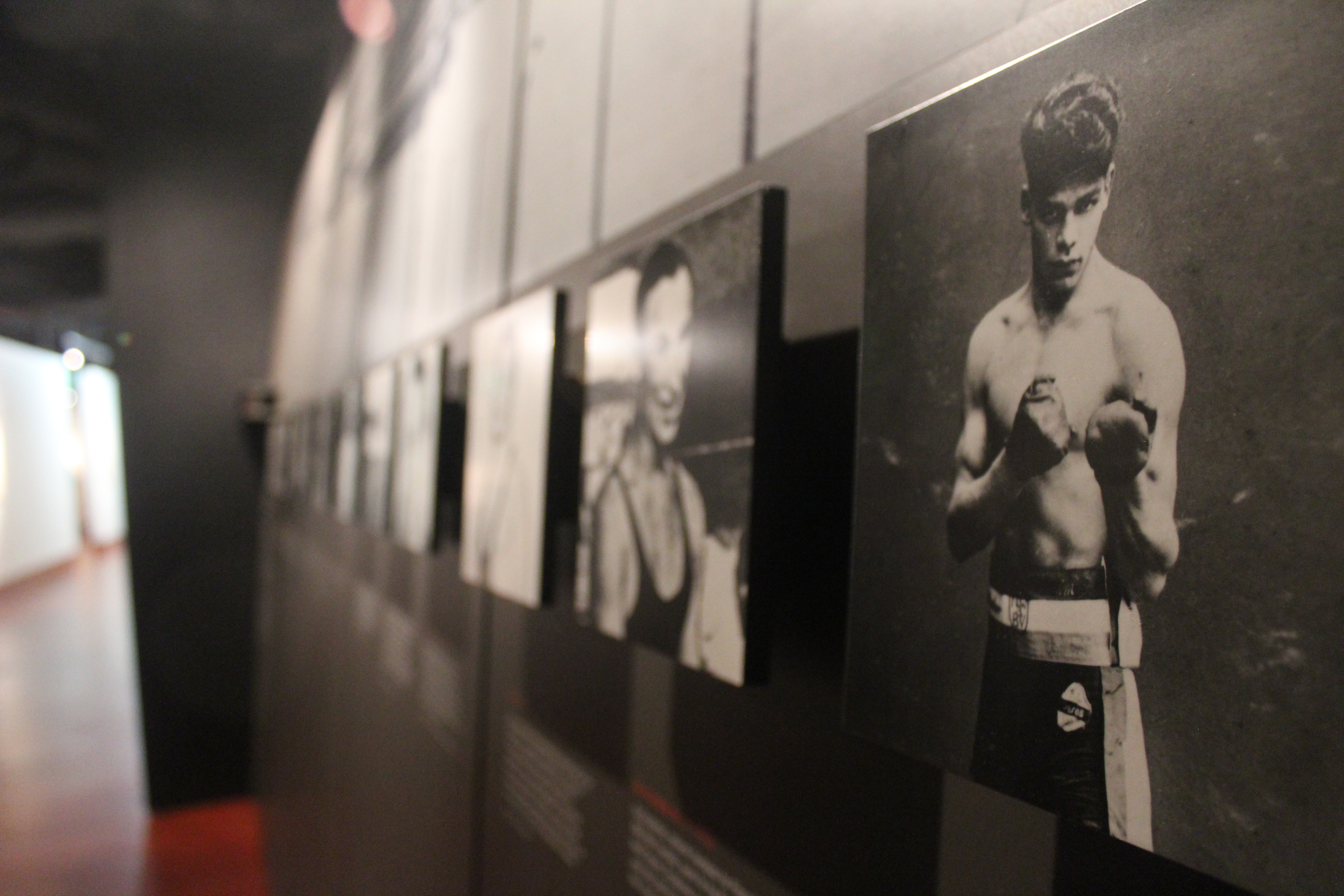Revealing the Stories Behind the 1936 Berlin Olympics

Growing up in pre-Nazi Germany, Gretel Bergmann skied, skated, and swam. And she claims to have she learned it all on her own.
"Nobody ever taught me anything. I played tennis. I played ping-pong," she said in an interview years later. "I was possessed, I think, by sports."
Bergmann excelled most at the high jump, and by 22, was undoubtedly performing at an Olympic level. With Adolf Hitler's rise to power, however, she found herself excluded from not only her sports club, but the 1936 German national team because of her Jewish heritage. Even international pressure and protests against ethnic discrimination were not enough to secure her chance to compete.
"I would have been a loser either way. Because had I won, there would have been such an insult against the German psyche—'How could a Jew be good enough to win the Olympics?'—that I would have had to be afraid for my life, I’m sure," she says. "And had I lost, I would have been made into a joke— 'See, we knew the Jew couldn’t do this'—and that was on my mind all these years."
Watch Bergmann's story via the United States Holocaust Memorial Museum.
Now 101 years old and living in New York, Bergmann goes by her married name of Margaret Lambert. Her story is one of the many featured in the Stark Center’s latest exhibition, The Nazi Olympics: Berlin 1936, where three televisions play a reel of athlete interviews on a loop.
Originally produced by the U.S. Holocaust Memorial Museum for the 1996 Atlanta Olympics, the traveling exhibit rolled up to Darrell K Royal Memorial Stadium this summer in three impressive semi-trailer trucks. Movers, carpenters, lighting specialists, and many other experts set up the exhibition space five floors up within The Stark Center for Physical Culture and Sports.
Founded by husband-and-wife team Terry and Jan Todd, PhD ’95, Life Members, the Stark Center represents history, sport, and culture in three ways: as a research center, museum, and Olympic studies center, officially recognized by the International Olympic Committee and one of only three in the United States.
Jan Todd draws countless connections between UT-Austin alumni and the historic 1936 Olympics, from swimmer Adolf Kiefer's gold medal win to track-and-field star Trey Hardee's experience competing in the same Olympic stadium years later. She calls the games an important cultural moment.
“One of the reasons why we’re very excited to bring it to campus is because it is a great history lesson, but also because it’s a real interdisciplinary history lesson for the community,” she says.
The exhibit's presence on campus is the result of a collaboration with sponsors the Schusterman Center for Jewish Studies and the Texas Program on Sports and Media. TPSM director Michael Cramer scans the greyscale panels of images and text, pointing to a blurry, blown-up photo of Adolf Hitler. One surprising result of the 1936 games, he says, was that U.S. sports fans' national pride momentarily crowded out their racial prejudice as they rooted enthusiastically for all members of the team.
"It took somebody like Hitler for Americans to rally around Jesse Owens," he says, referencing the track-and-field athlete who became a leading African-American sports hero. Hitler saw the 1936 games as a chance to showcase the supposed superiority of the Aryan race, and he insulted African-American athletes, calling them "non-humans." Owens proved him wrong by bringing home four gold medals.
Cramer teaches a course on the intersection of sports, media, and the integration of American society through the Moody College of Communication. He notes how Berlin 1936 was “the first political Olympics,” when symbolism behind salutes, flag-raising, and boycott campaigns made the games a forum for influential political statements and propaganda.
“Politics happen in the Olympics all the time now because it’s such a major worldwide event and it shows the power of sports," Cramer says. "People pay attention."
The exhibit is on display until Jan. 29, 2016, just before the 80th anniversary of the 1936 Berlin Olympics. Film screenings and speakers are slated for the fall.
Photo by Jan Ross Piedad





